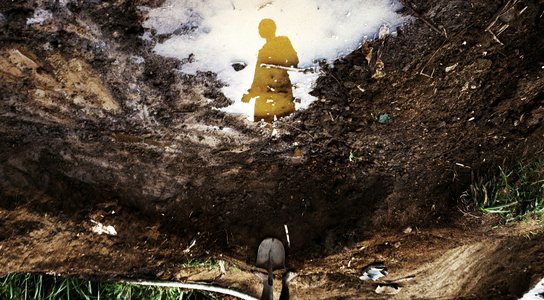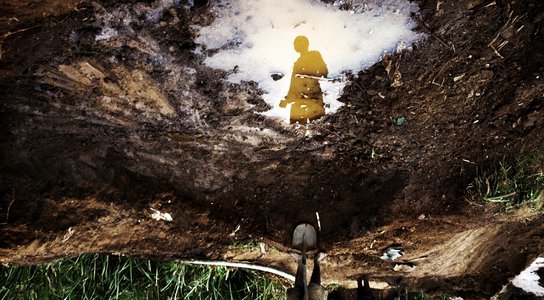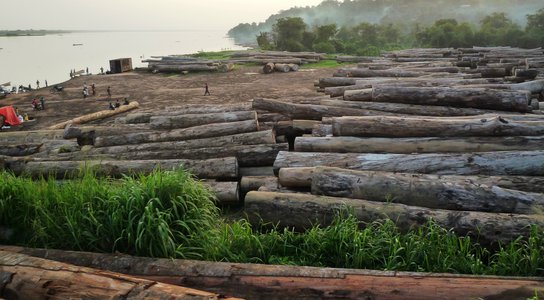Global Witness today warns that Democratic Republic of Congo is planning to remove crucial regulations banning politicians and senior army figures from owning mining rights, as business leaders and government officials gather in Kinshasa to discuss the mining industry.
The removal of vital terms on conflict of interest has so far passed almost unnoticed, but coupled with extremely loose transparency provisions, could leave Congo’s mining sector open to corrupt deals and cost the country billions of dollars. The proposed change is included in amendments to Congo’s 2002 mining law submitted by the Congolese government to parliament in March, and published by Global Witness.
For too long Congo’s mining sector has been vulnerable to exploitation by corrupt politicians and businessmen. Attempts to remove conflict of interest provisions will make it easier to strike dodgy deals that deny the Congolese treasury billions of dollars. Congo cannot afford to miss this chance to tighten up its regulations so that its people benefit from the country’s mineral wealth. - Nathaniel Dyer, Congo team leader at Global Witness.
The revision of the mining law has dragged on for over three years, mired in dispute between government, private sector and civil society interests. While the delays to the review are concerning, worse still are the weaknesses that remain in – or have been introduced to – the suggested new legislation. According to Global Witness’s analysis:
- Conflict of interest safeguards have been removed;
- There is no specific provision for the publication
of contracts;
- There is insufficient transparency and scrutiny
in the tender process, with too much discretion left to the Mines Minister;
- State-owned enterprises have been left largely
unregulated;
- Clear and rigorous beneficial ownership
disclosure requirements are needed;
- There are no articles dealing specifically with the prevention of conflict financing and army involvement in the minerals trade.
The revision of the law, which is yet to be tabled, is a rare opportunity to close crucial loopholes in the existing legislation. Secret mining deals in recent years are estimated to have cost Congo at least $1.36 billion dollars – equivalent to twice the country’s annual health and education spending combined. Failures of governance and transparency in the sector have increased the potential for corrupt political elites to benefit personally from their country’s assets, while brutal armed groups and members of the Congolese army in the east have been able to finance their activities on the back of the artisanal mining sector.
Global Witness is calling for the new legislation to shed more light on the industrial mining sector, prevent politically-exposed persons from profiting from mining, expose the identities of the ultimate owners of mining rights, and put an end to the transport, smuggling and sale of minerals by armed men, members of the army and provincial officials.
“This week Kinshasa is hosting the IPAD mining and infrastructure conference, which invites delegates to ‘tap into [Congo’s] $24 trillion mineral reserves.’ Mining wealth should not be lining the pockets of elite businesspeople, companies and politicians, but should rather be paying for much-needed schools, hospitals and roads in Congo,” added Dyer.
Run properly, the mining sector in Congo could help drag the country out of poverty. Though the country comes second bottom of the UN development index, Congo became Africa’s largest copper producer in 2014 and mining contributed over $1.3 billion to Congo’s treasury in 2013, according to the Extractive Industries Transparency Initiative.
/ ENDS
Contacts
-
Nathaniel Dyer
Notes to editor:
You might also like
-
Campaign Democratic Republic of Congo
The Democratic Republic of Congo (DRC) has an immense wealth of natural resources. But instead of driving development, these riches are benefiting predatory elites, armed groups and cowboy firms.
-
Report Digging for Transparency
Nearly 80 cent of U.S. public companies analyzed by human rights groups are failing to adequately check and disclose whether their products contain conflict minerals from Central Africa, reveals a new report by Global Witness and Amnesty International.
-
Report Exporting Impunity
European and US company executives could face fines and even jail time for trading with Congolese logging companies accused of systematic illegal logging and social and environmental abuses, our exposé warns.